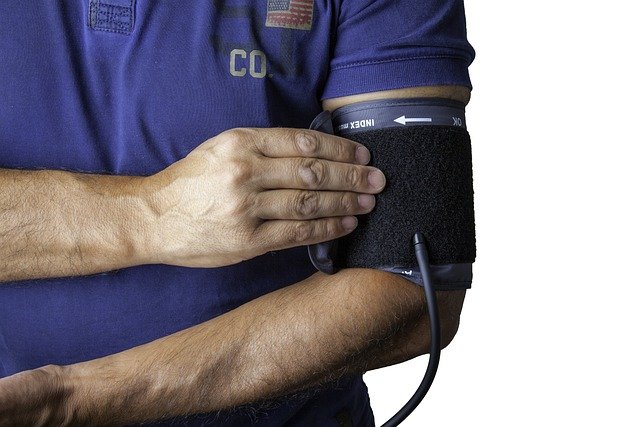Rectal cancer: Symptoms, diagnosis, and treatment options
Rectal cancer develops in the last several inches of the large intestine and often forms from polyps that become malignant over time. It can affect bowel habits and overall health, producing symptoms that range from changes in stool to systemic signs like unexplained weight loss or fatigue. Early detection improves treatment choices and outcomes, so understanding typical signs and how the disease is evaluated helps people seek appropriate care in a timely way.

This article is for informational purposes only and should not be considered medical advice. Please consult a qualified healthcare professional for personalized guidance and treatment.
What is rectal cancer and how is it linked to the colon?
Rectal cancer is a type of colorectal cancer that arises in the rectum, the final portion of the colon. The colon and rectum share similar tissue types and functions, so many aspects of colorectal cancer overlap, including risk factors such as age, family history, certain inherited syndromes, inflammatory bowel disease, smoking, and dietary patterns. Although anatomically distinct, rectal tumors are treated with approaches tailored to their location because the rectum’s position in the pelvis affects surgical options and the risk of local recurrence.
What symptoms should prompt evaluation, including weight loss?
Symptoms of rectal cancer can be local or systemic. Local signs include rectal bleeding, bright red blood on toilet paper or in the stool, a change in bowel habits (diarrhea or constipation), narrowing of stools, and a sensation of incomplete evacuation. Systemic symptoms can include unexplained weight loss and reduced appetite. Not all weight loss is due to cancer, but when combined with other concerning features—persistent bleeding, new bowel changes, or abdominal pain—it merits medical assessment.
How can rectal cancer cause fatigue and other systemic signs?
Fatigue in rectal cancer can result from several mechanisms. Chronic blood loss from a tumor can lead to iron-deficiency anemia, which commonly produces tiredness and low energy. Cancer-related inflammation and metabolic changes can also cause general weakness, unintentional weight loss, and reduced stamina. Fatigue is nonspecific and common in many conditions, but persistent or progressive fatigue alongside gastrointestinal symptoms should lead to discussion with a clinician for appropriate testing.
How is rectal cancer diagnosed and staged?
Diagnosis usually begins with a clinical history and physical examination, including a digital rectal exam. If cancer is suspected, colonoscopy is the primary diagnostic test because it allows direct visualization and biopsy of suspicious lesions. Imaging such as pelvic MRI, CT scans, and sometimes endorectal ultrasound help determine the local extent of the tumor and whether nearby lymph nodes or distant organs are involved. Staging combines pathological and imaging information to guide treatment—early-stage tumors may be removed surgically, while more advanced tumors often need combined therapies.
What treatment options are used for rectal cancer?
Treatment depends on stage, location within the rectum, and patient health. Early-stage rectal cancers are often treated with surgery to remove the tumor and surrounding tissue, sometimes preserving sphincter function. For locally advanced tumors, a combination of radiation therapy and chemotherapy before surgery (neoadjuvant therapy) can shrink the tumor and reduce recurrence risk. Adjuvant chemotherapy after surgery may be recommended when lymph nodes are involved. For metastatic disease, systemic chemotherapy, targeted agents, and immunotherapy are options depending on tumor biology and prior treatments. Multidisciplinary care involving surgeons, medical oncologists, and radiation oncologists is standard.
Follow-up, screening, and considerations for local services
After treatment, follow-up includes routine physical exams, periodic colonoscopies, blood tests such as carcinoembryonic antigen (CEA) when applicable, and imaging to monitor for recurrence. People with a history of polyps or family risk factors should engage in guideline-based screening for colorectal cancer; screening can detect polyps before they become cancerous or catch cancer at an earlier, more treatable stage. If you are looking for local services, search for colorectal specialists, comprehensive cancer centers, or clinics with a multidisciplinary colorectal team in your area to discuss individualized screening and treatment plans.
Conclusion
Rectal cancer is a condition with distinct local and systemic effects that overlap with other colorectal diseases. Recognizing potential symptoms like changes in bowel habits, rectal bleeding, weight loss, and fatigue can prompt timely evaluation. Diagnosis relies on endoscopy and imaging, and treatment is increasingly personalized, often involving surgery combined with radiation and chemotherapy when needed. Ongoing follow-up and appropriate screening for at-risk individuals support better long-term outcomes.




